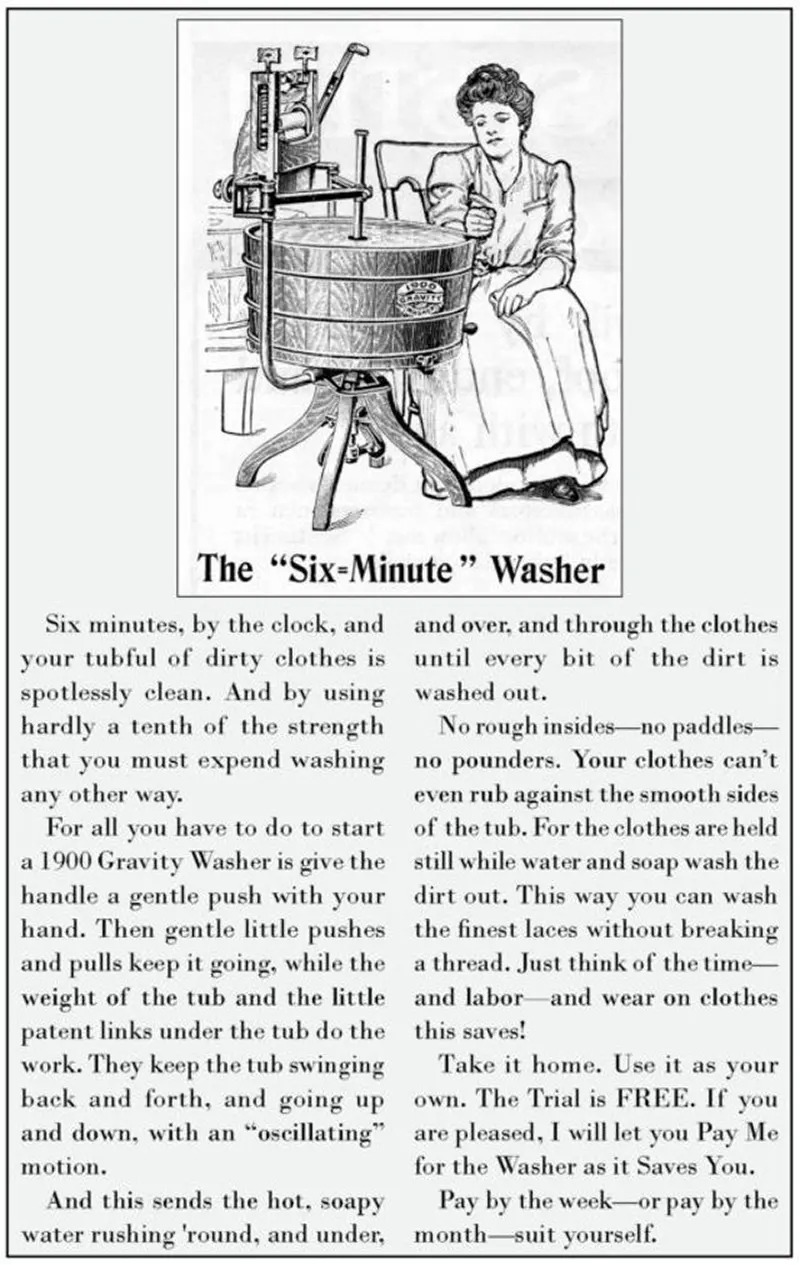The washing machine brought a transformative change to the lives of women in the 20th century by dramatically reducing the time and physical labor required for laundry. This innovation freed up countless hours that women could then dedicate to other pursuits.
This shift in domestic labor arguably had a more immediate and widespread impact on women’s daily lives than other societal advancements like birth control, the right to work, or even the right to vote.
The evolution of laundry technology, from communal washhouses to the invention of modern washing machines, represents a significant leap in household convenience and labor-saving innovations.
Early laundry methods
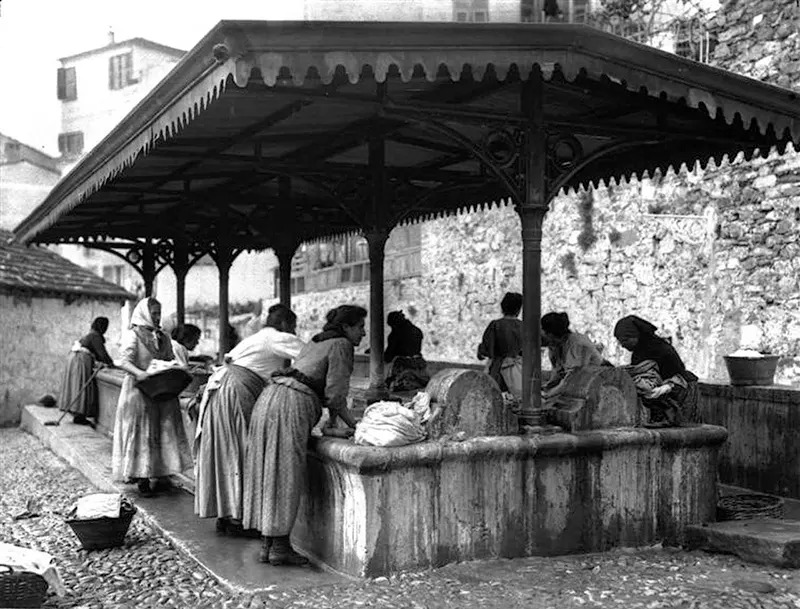
Before the advent of washing machines, laundry was a communal activity. In Europe, villages that could afford it built washhouses, known as lavoirs, where water from a stream or spring flowed into basins for washing and rinsing.
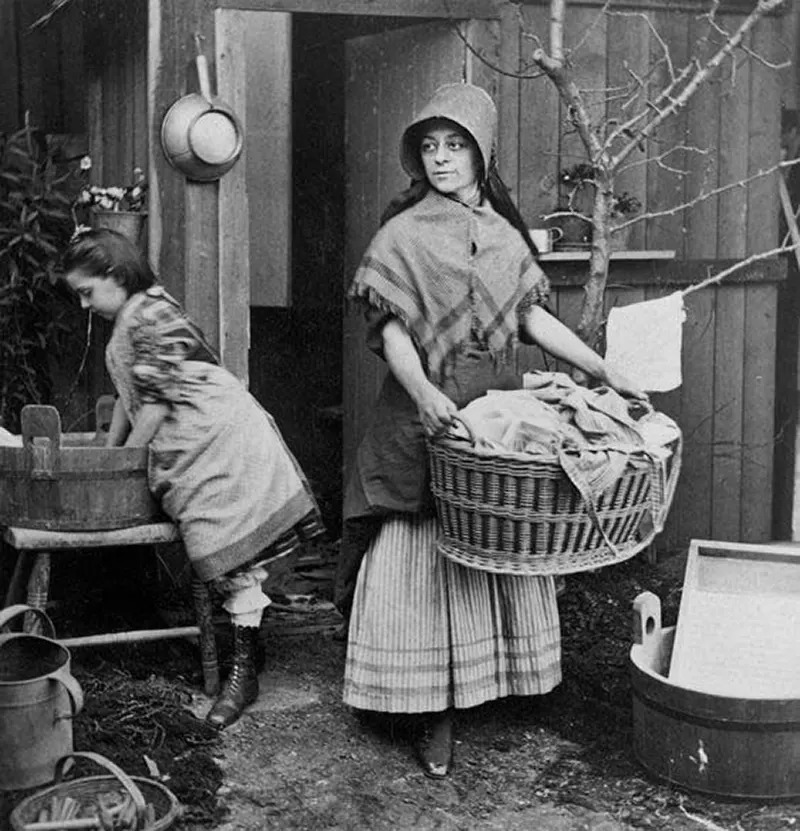
These spaces became important social hubs for women, who gathered not only to do laundry but also to share stories and support one another.
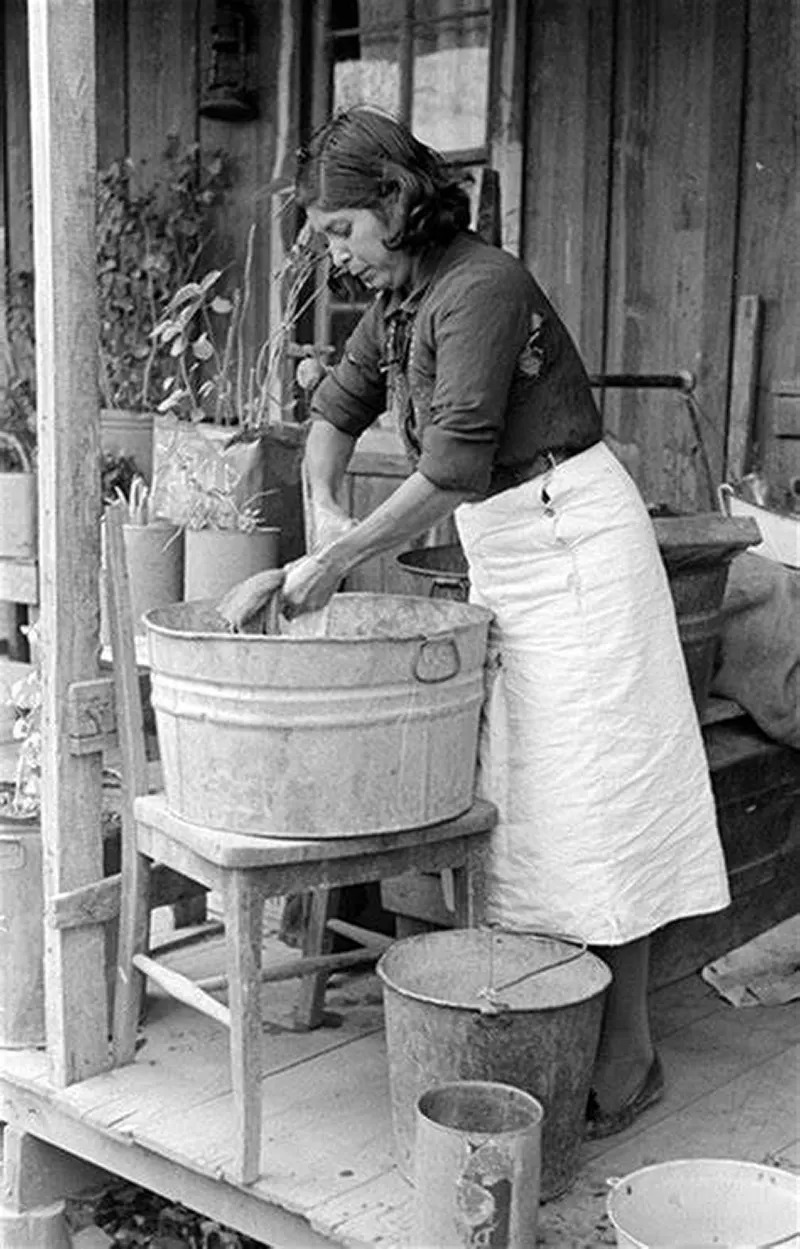
Laundry before washing machines was a labor-intensive process. Women used large metal cauldrons filled with hot water, as hot water was more effective at removing dirt.
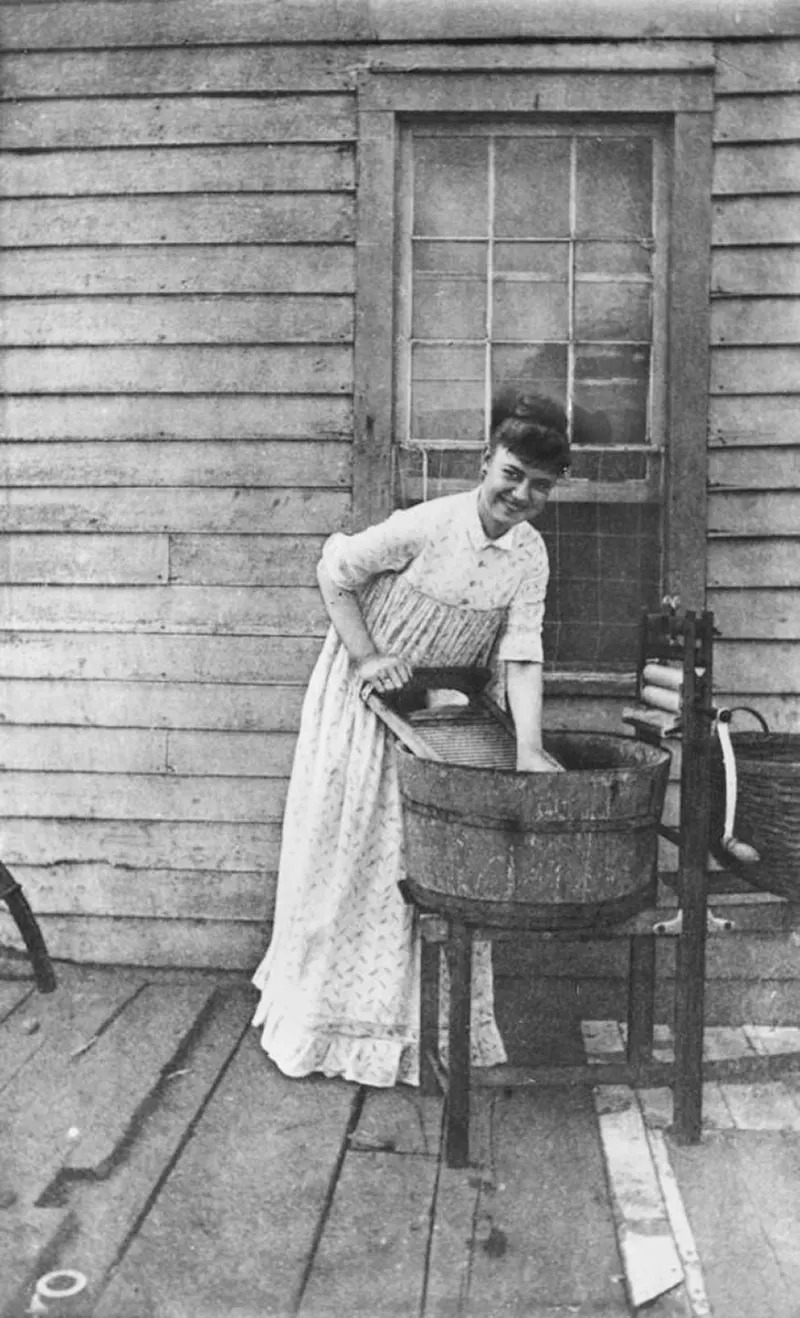
A tool called a posser was used to move the clothes around in the water. Early forms of mechanized washing included fulling, where cloth was beaten with wooden hammers in mills, marking the beginning of laundry technology.
The birth of washing machines
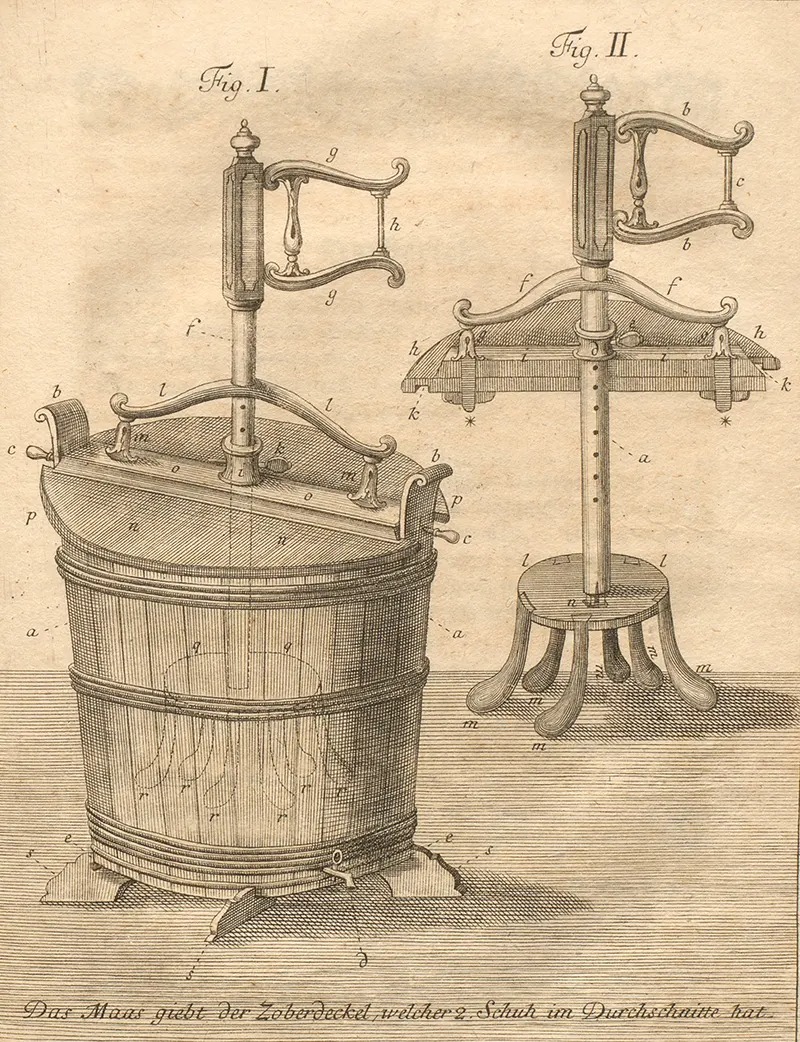
The development of washing machines began in the 17th century, with the first English patent granted in 1691.
Over the years, inventors like Jacob Christian Schäffer in 1767 and Henry Sidgier in 1782 made significant contributions to washing machine design.
These early machines featured rotating drums and textured surfaces to assist in scrubbing clothes, making the laundry process more efficient.
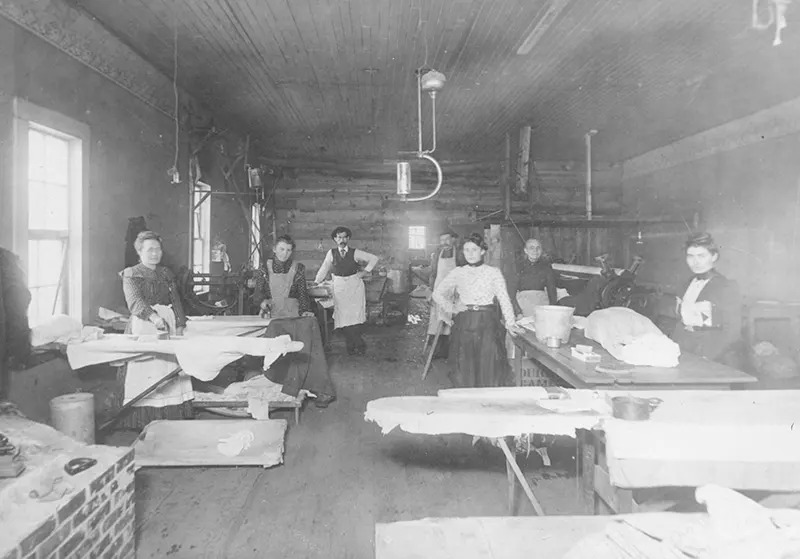
The Industrial Revolution was a pivotal moment in the advancement of laundry technology. The invention of the mangle, or wringer, in the 19th century revolutionized the way people removed excess water from clothes.
This innovation, along with the development of hand-operated washing machines, laid the groundwork for the electric washers that would follow in the 20th century.
The rise of electric washing machines
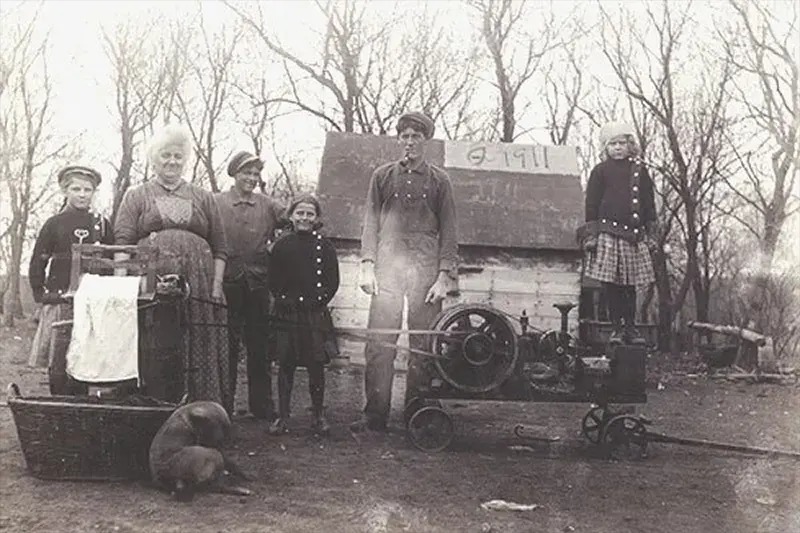
The 20th century marked the rise of electric washing machines, with the 1907 Thor, manufactured by the Hurley Electric Laundry Equipment Company, being the first commercially sold electric washer in the United States.
Engineered by Alva J. Fisher, the Thor set the standard for modern washers, and by the 1940s, these machines had become a common fixture in American homes.
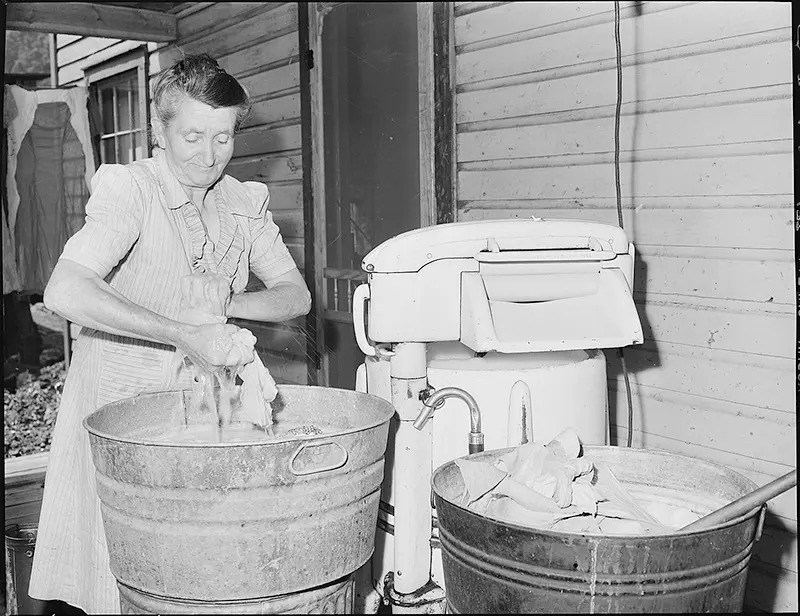
The late 1940s and 1950s saw a surge in the production of automatic washing machines, with companies like General Electric and Hoover leading the way.
These machines introduced features that closely resemble those found in modern washers.
In Europe, the economic impact of World War II delayed the popularity of electric washers until the 1950s, with early models being single-tub machines with wringers.
1. “Farm wife washing clothes. Lake Dick Project, Arkansas”, September 1938
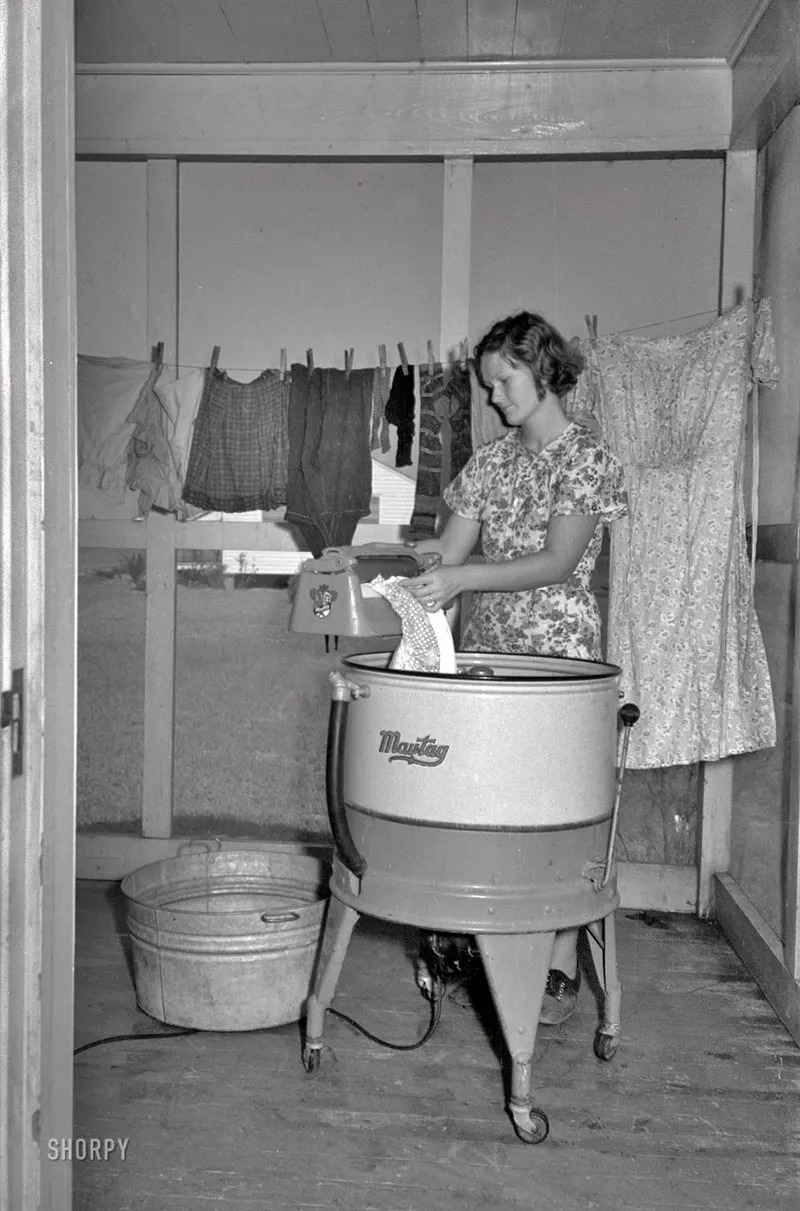
2. A woman happily using a vintage washing machine with a hand-cranked wringer
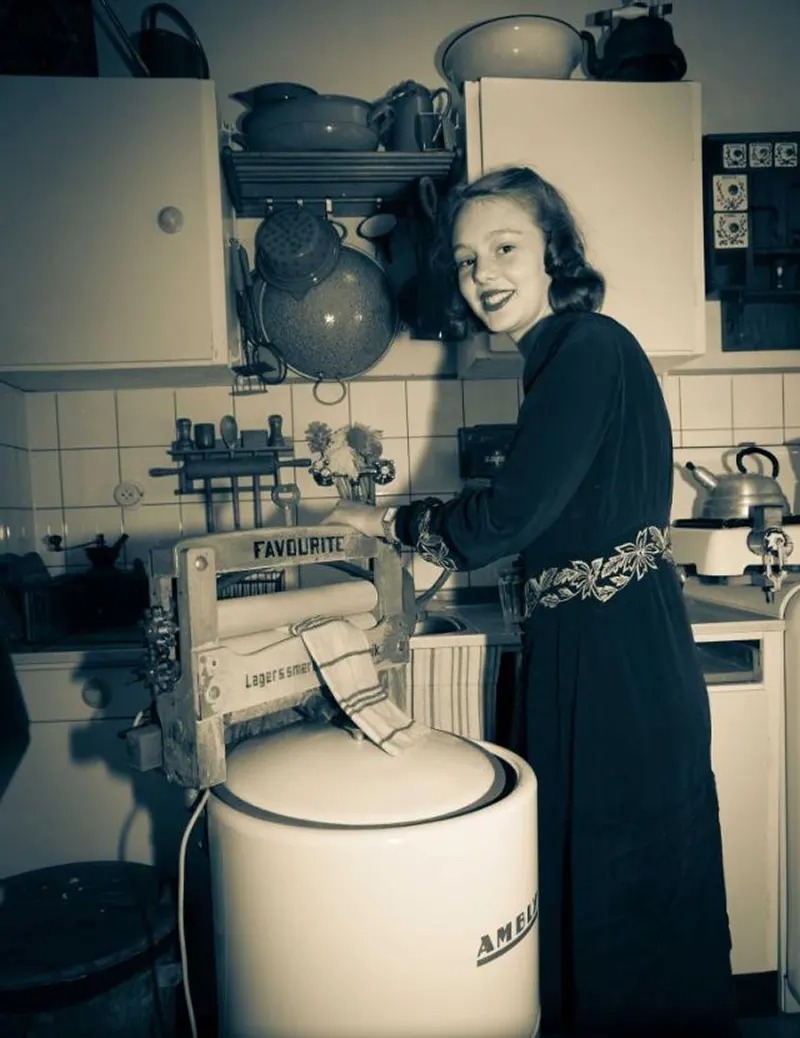
3. A simple, crank-operated washing machine
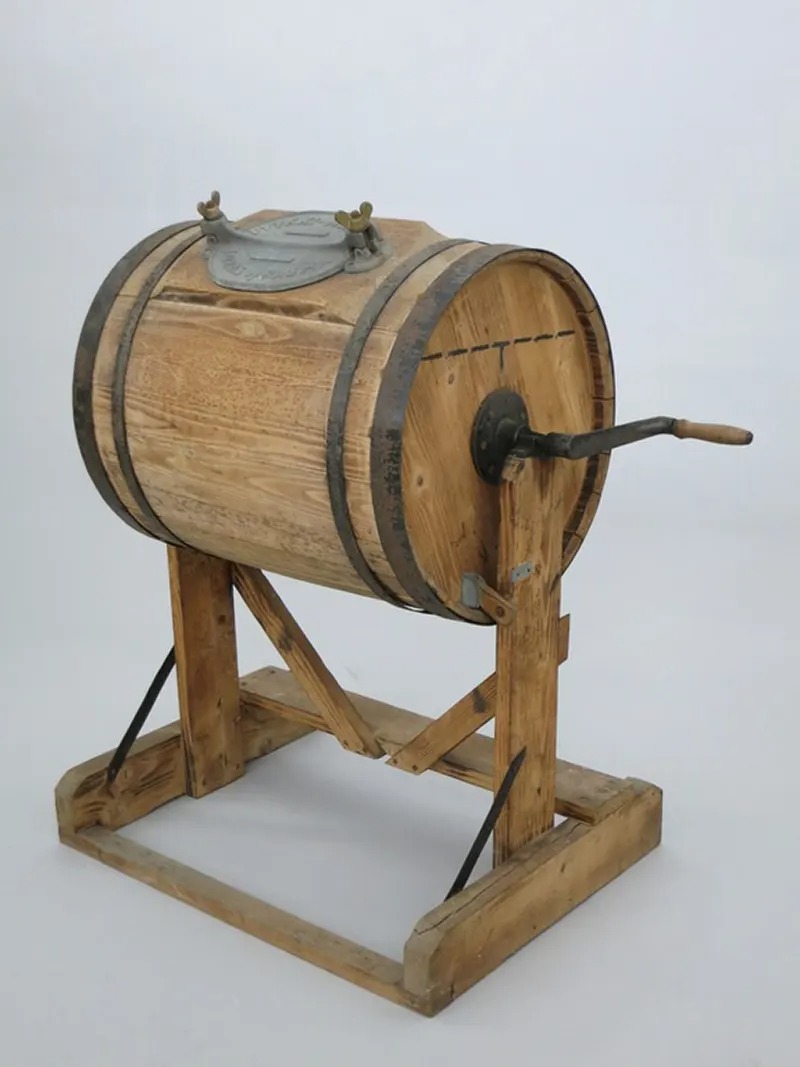
4. A 1923 electric Miele washing machine with a built-in mangle
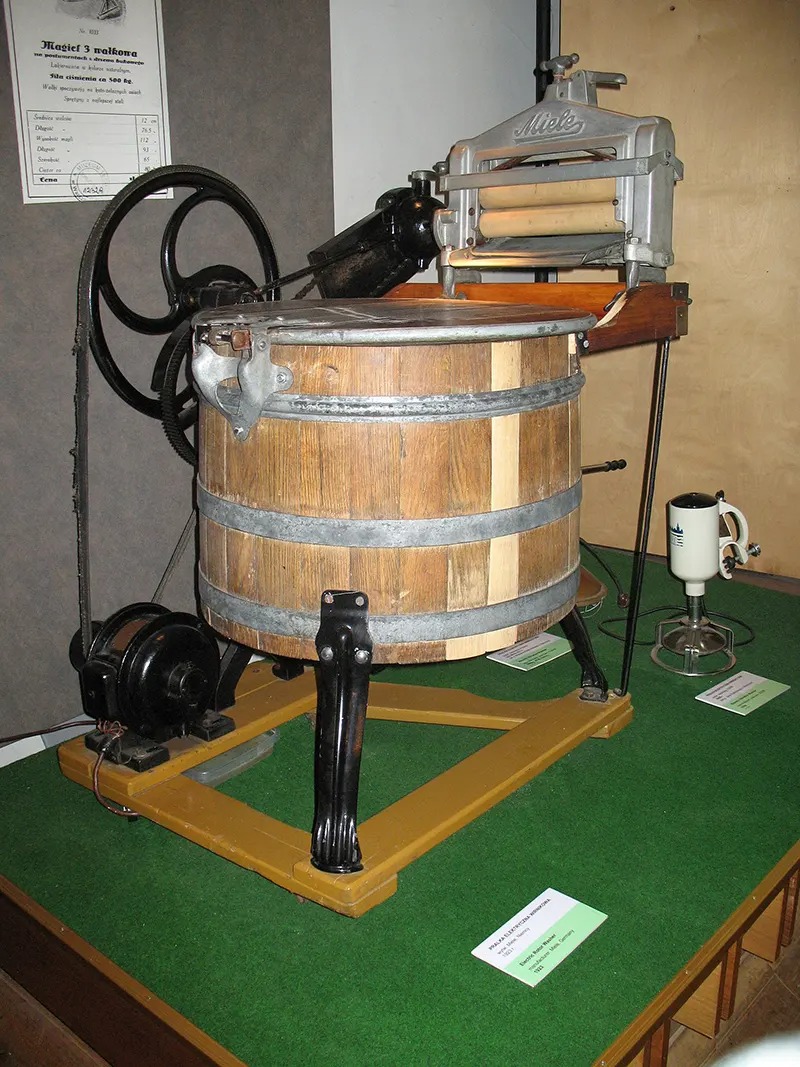
5. “Woman’s Friend” machine, c. 1890
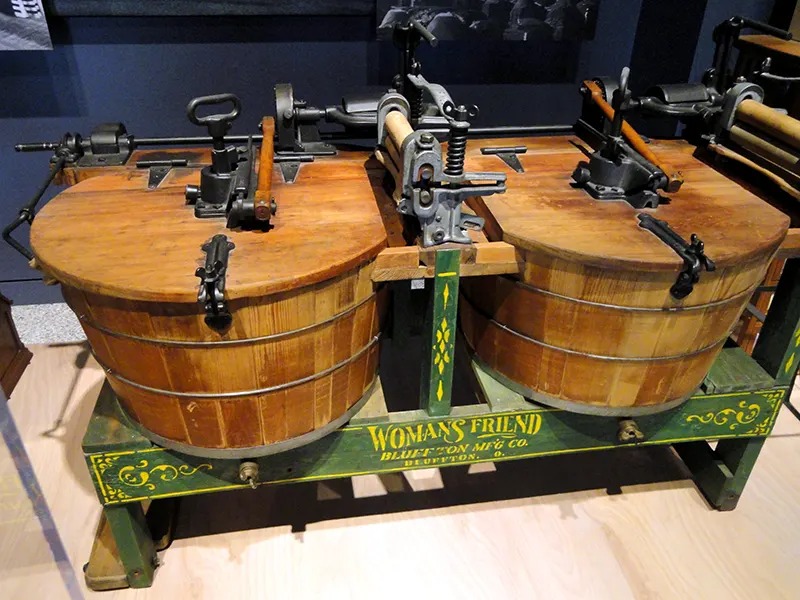
6. The Rotary Machine, 1858
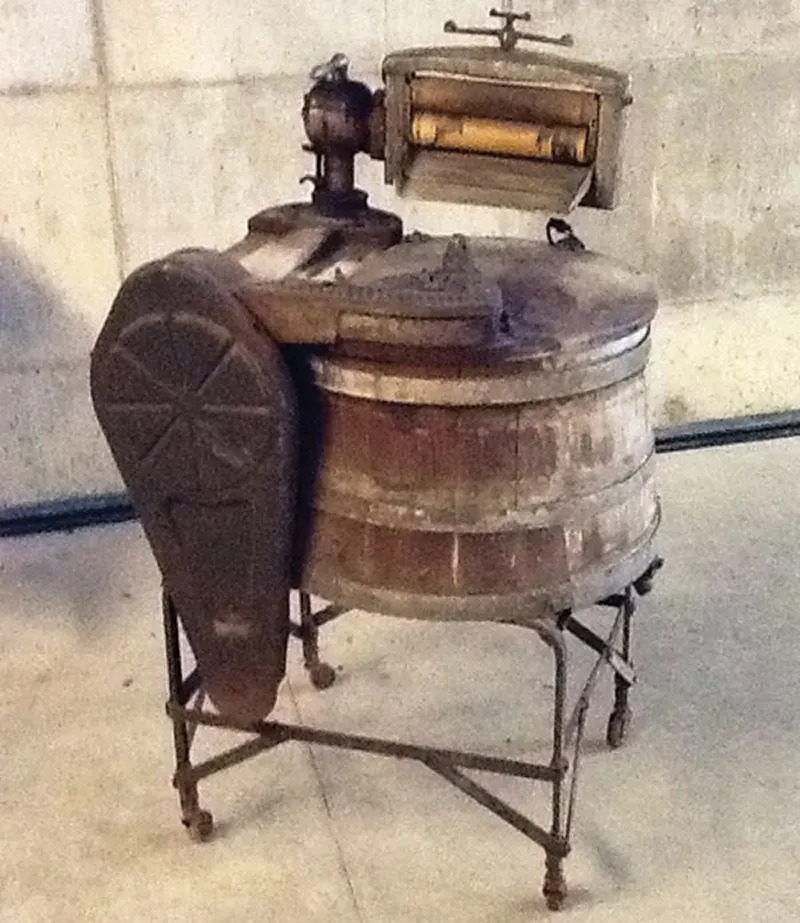
7. Thor Electric Washing Machine, 1935
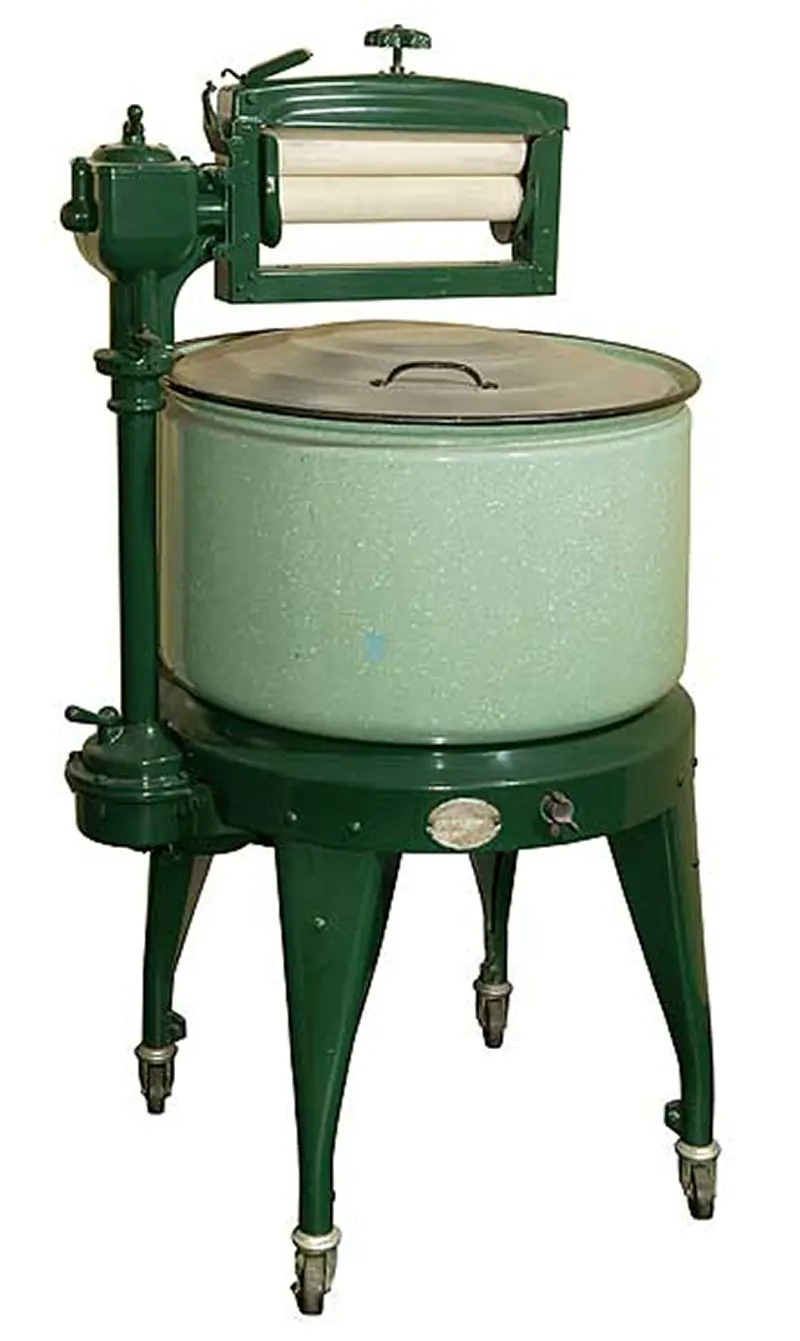
8. Maytag Wringer Washer, 1940
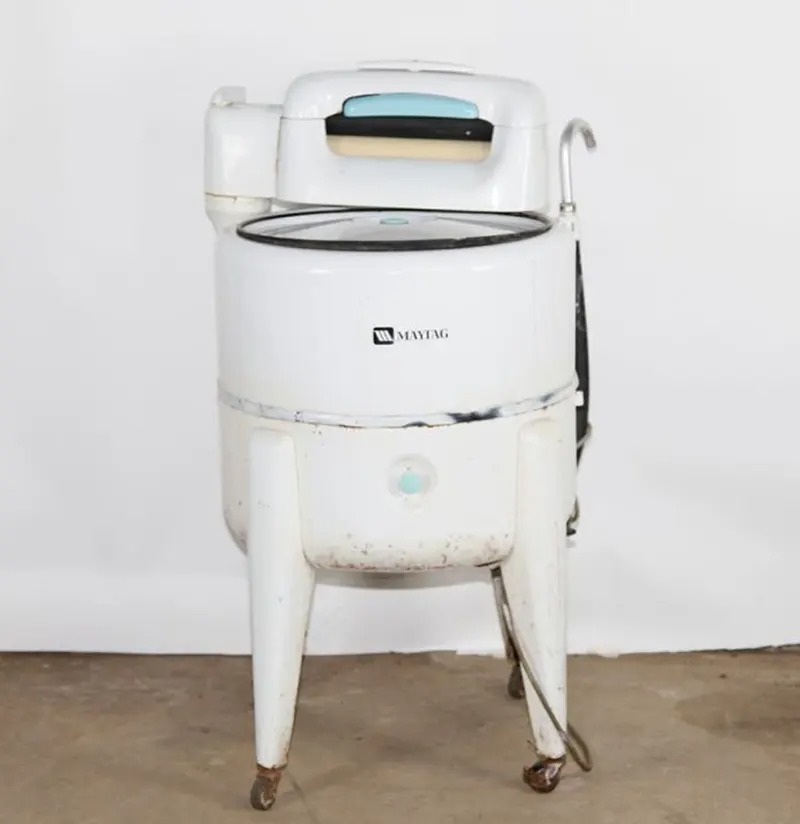
9. Gravity Washer, 1900
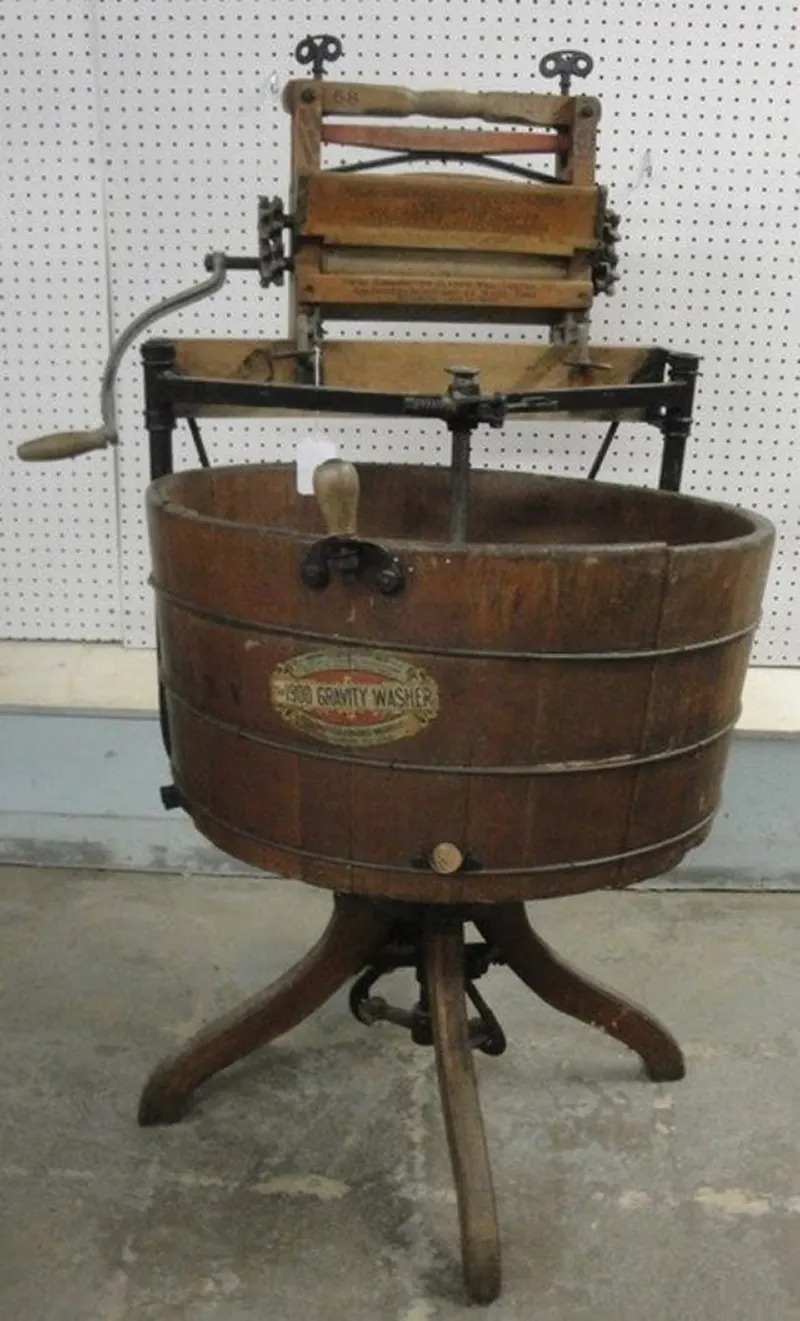
10. Washing Machine, 1890
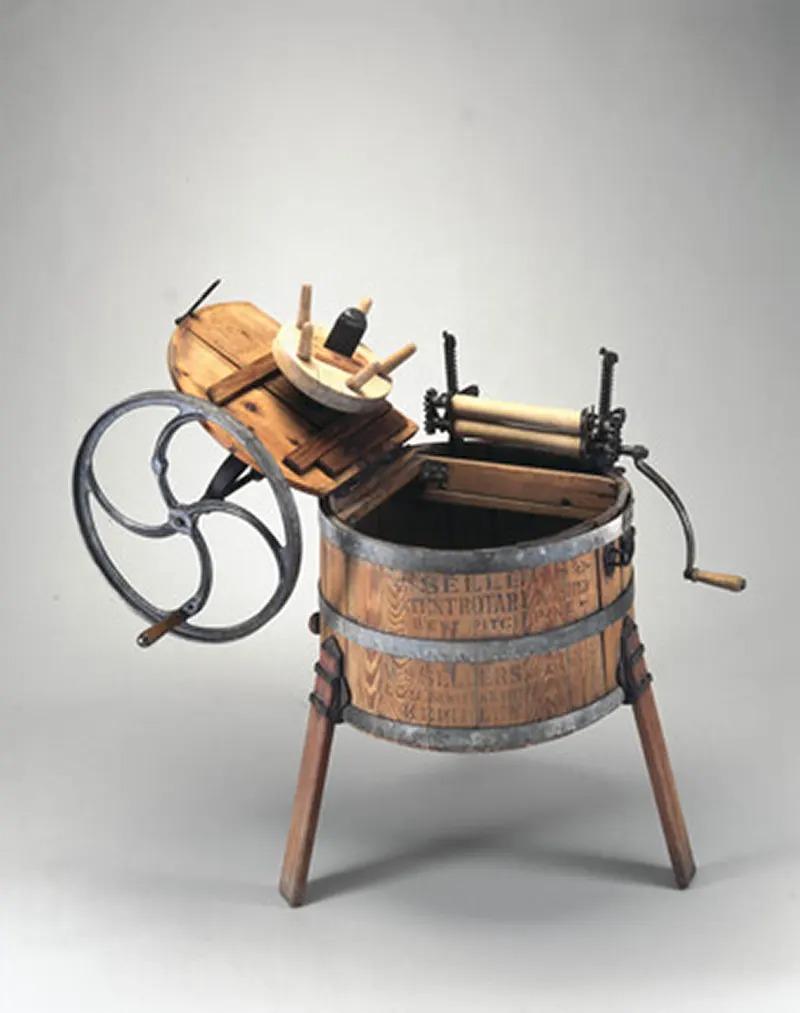
11. Washing Machine, 1928
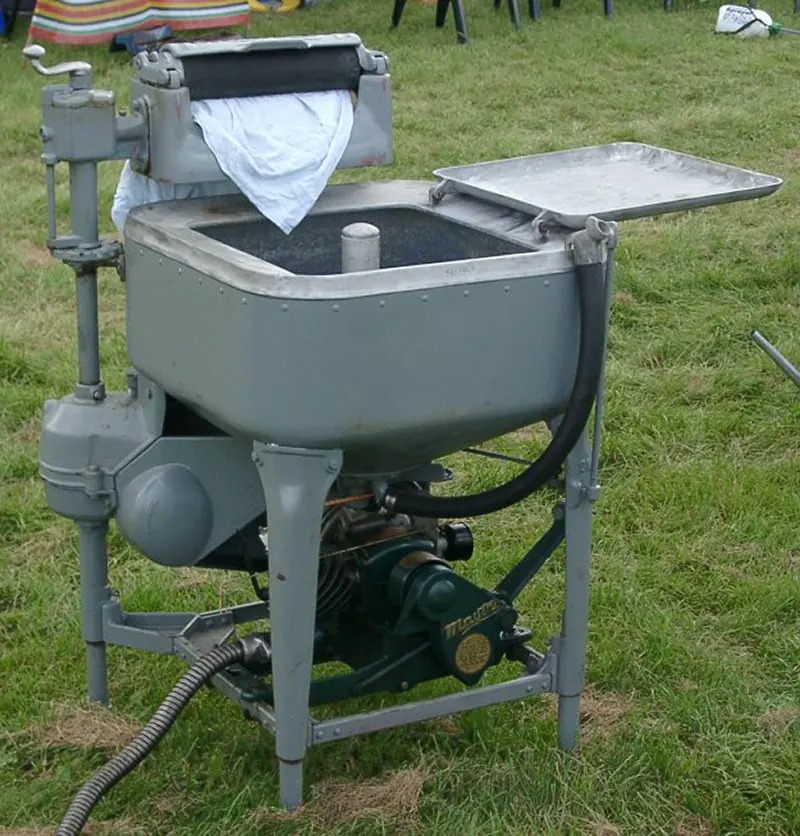
12. A state-of-the-art washing machine boasted that a woman could do a load in six minutes by simply sitting and turning the crank handle
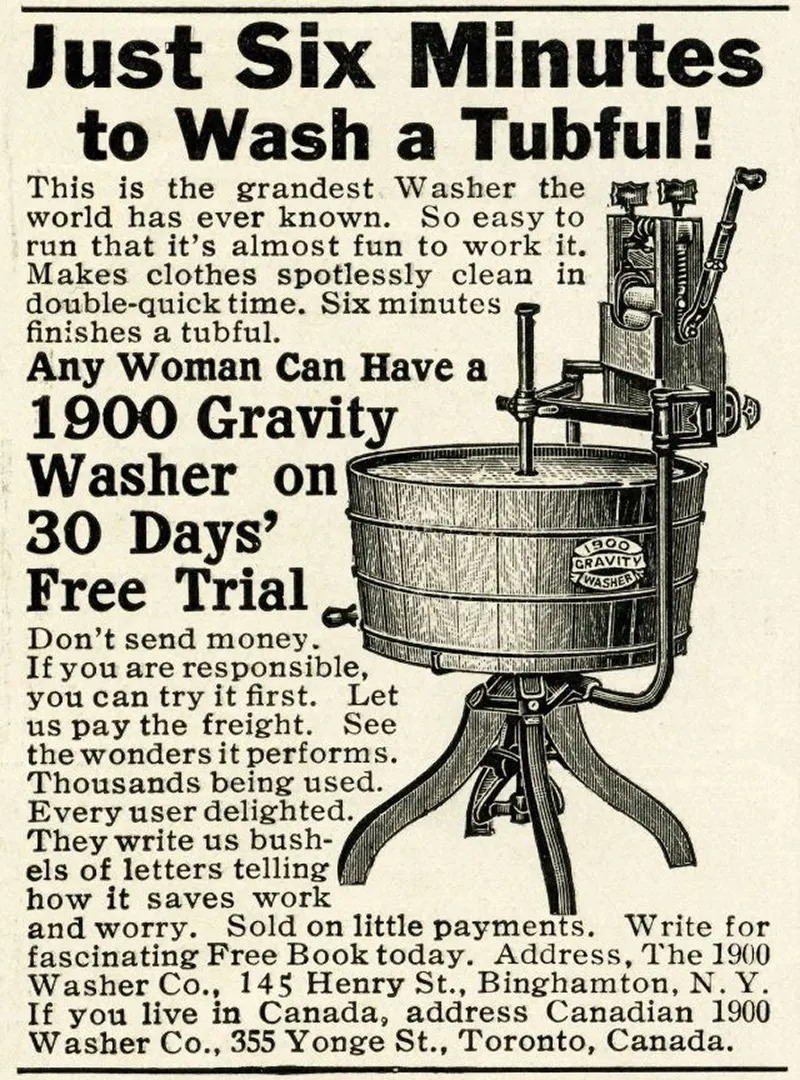
13. 1916 vintage advertising illustration for Maytag Washing Machine
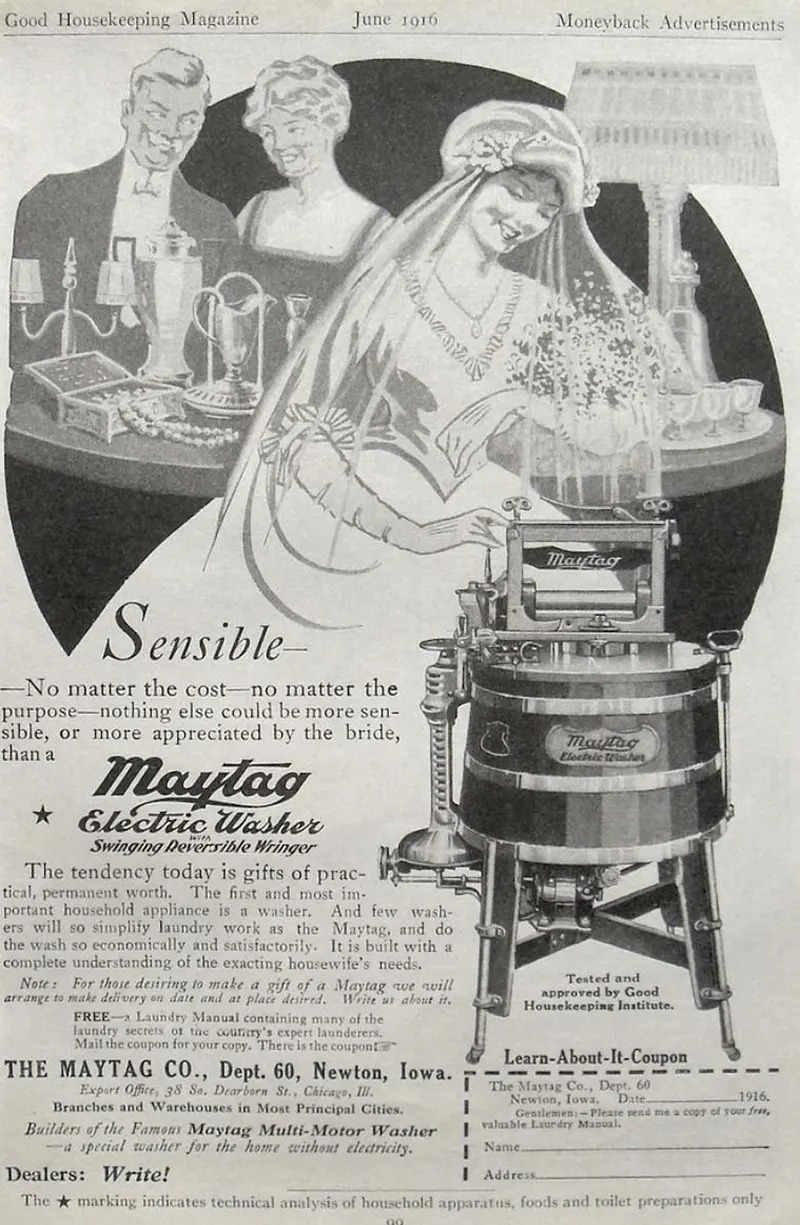
14. Kentucky Utilities Company, woman demonstrating wringer-type washing machine, 1943
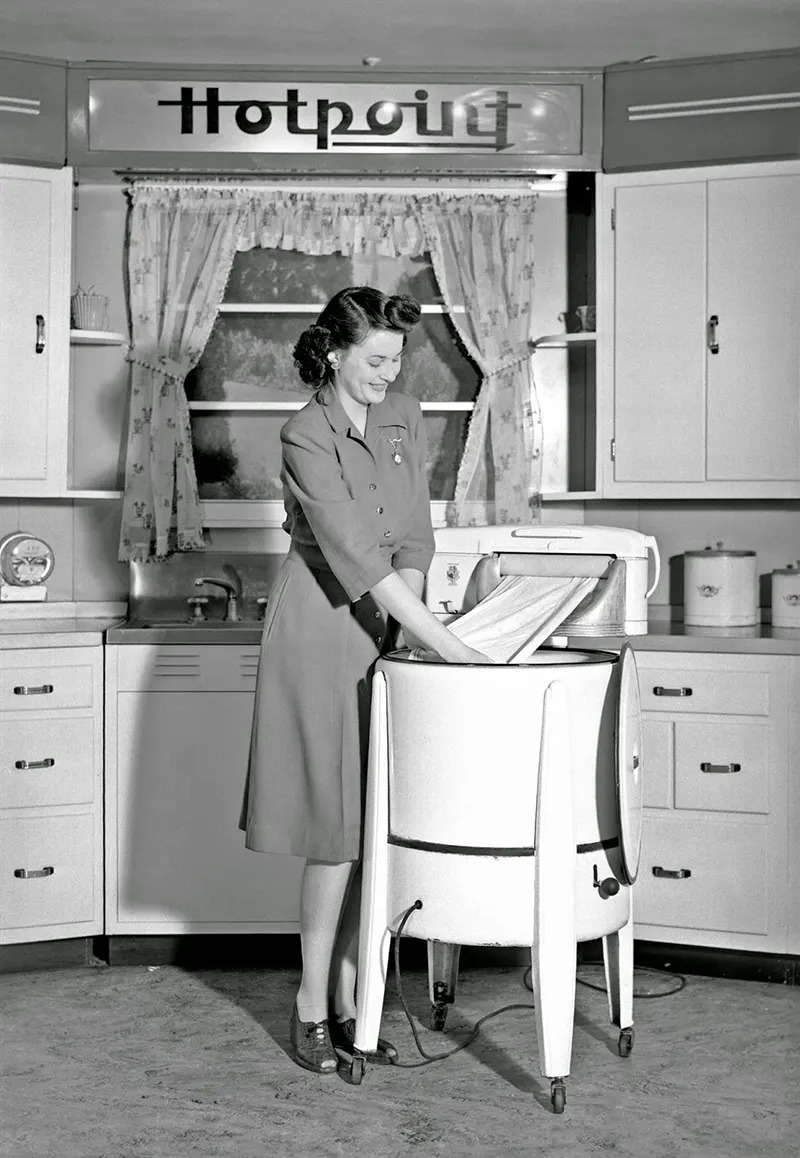
15. Ben Leeson and his wife, circa 1901
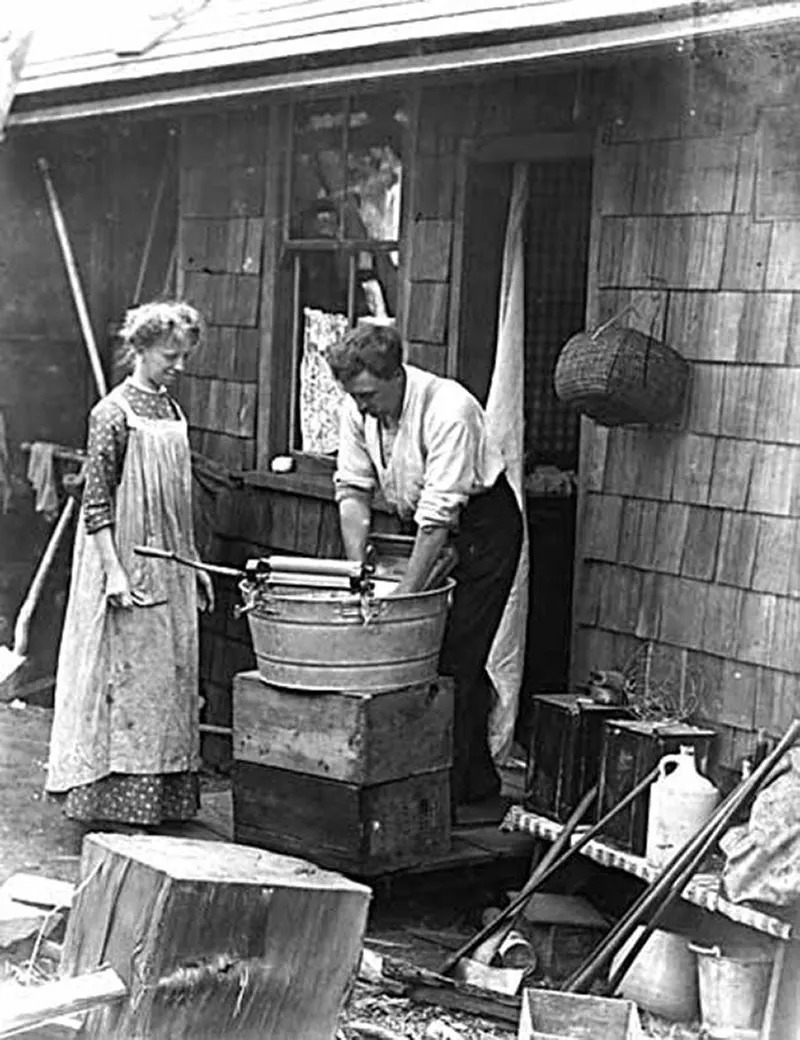
16. “Farm Woman using her electric mangle” Montgomery County, Indiana, 1930
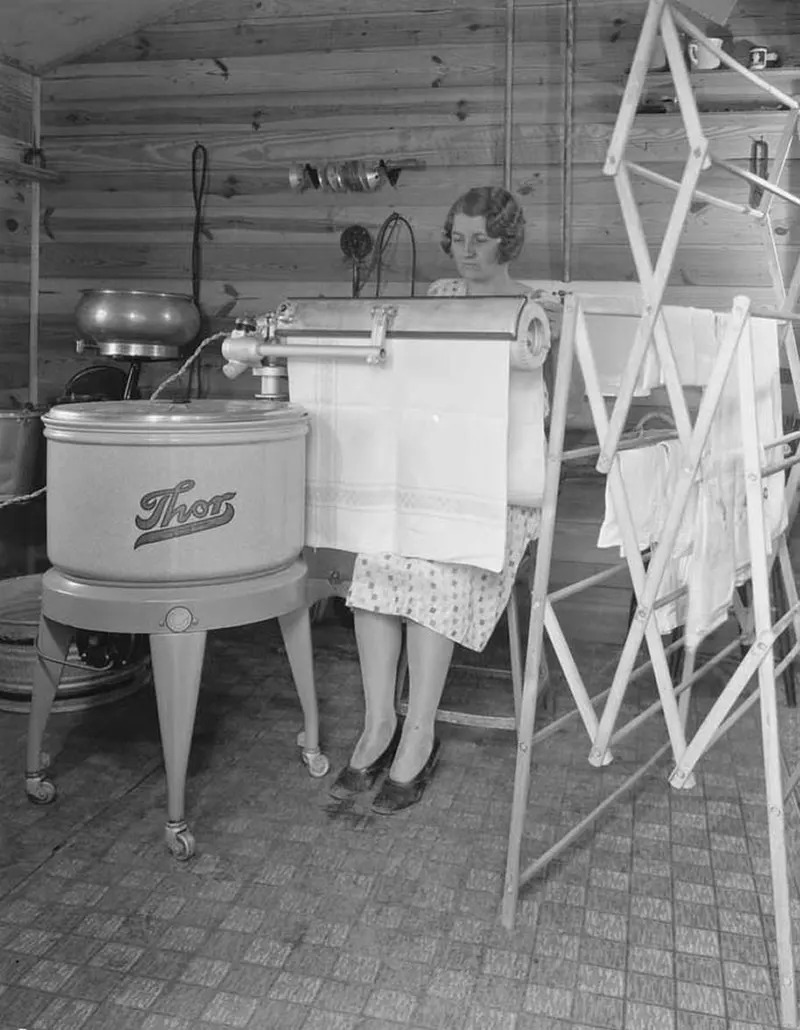
17. Actress Eileen Pollock is pictured with an electric washing machine at the 1935 Daily Mail Ideal Home Exhibition at Olympia
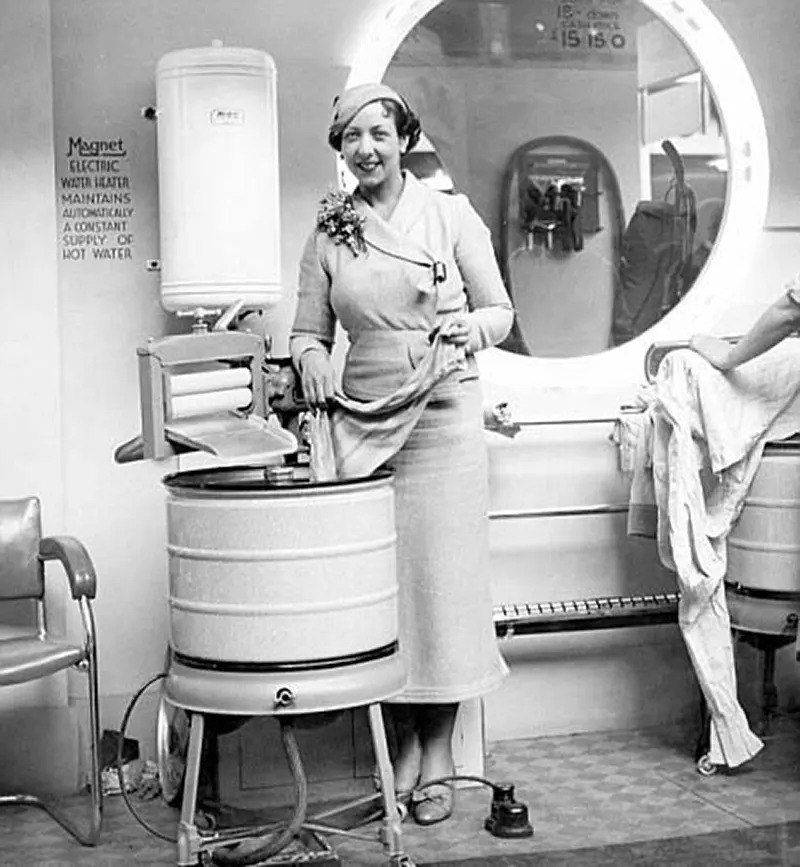
18. A woman operating a vintage hand-cranked washing machine in a basement laundry room
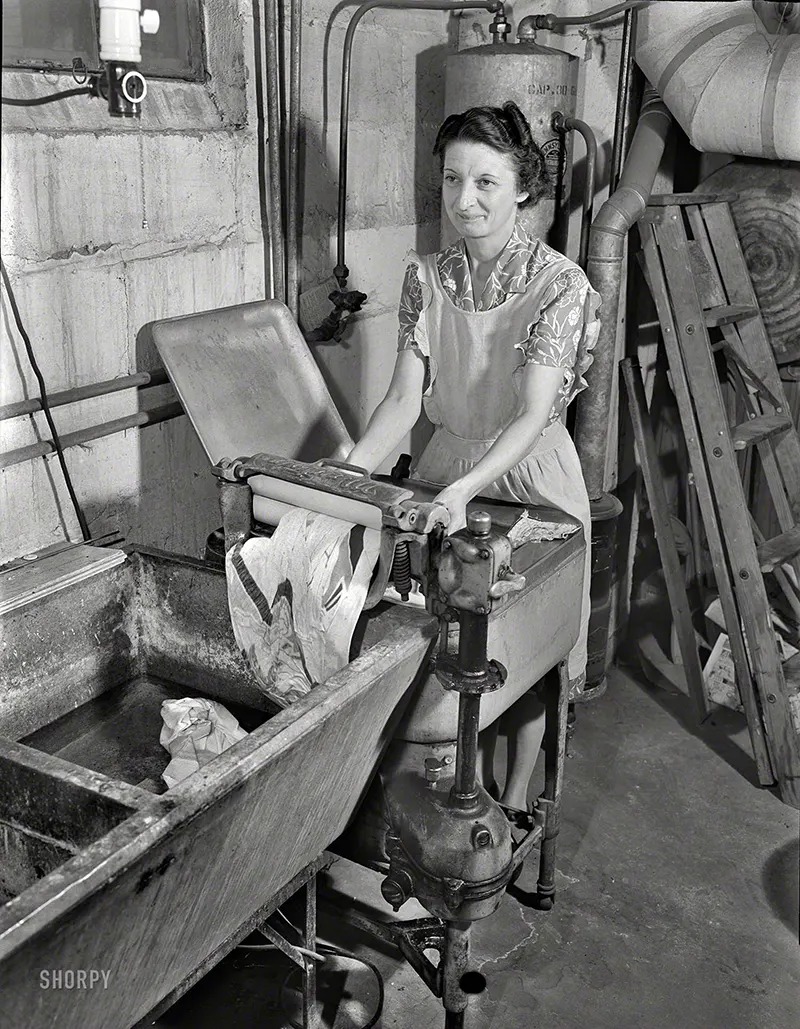
19. A vintage washing machine, wooden barrels, and hand tools
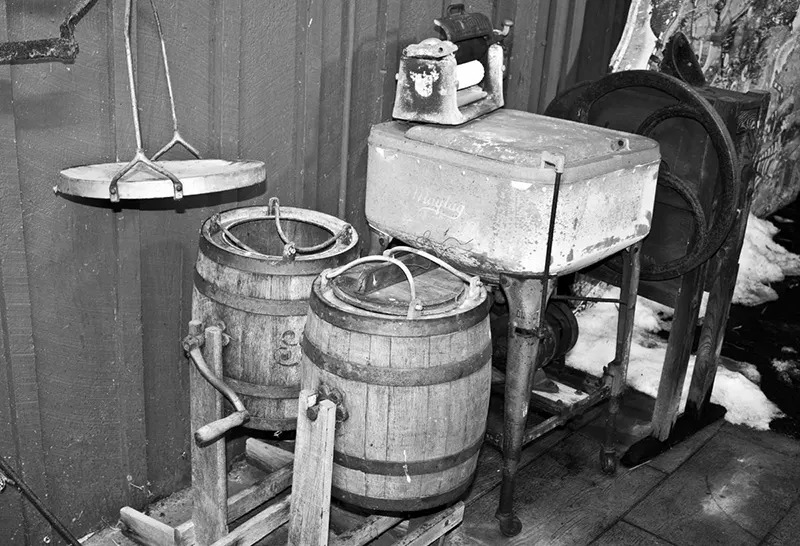
20. A housewife in the 1950s using a state-of-the-art electric washing machine
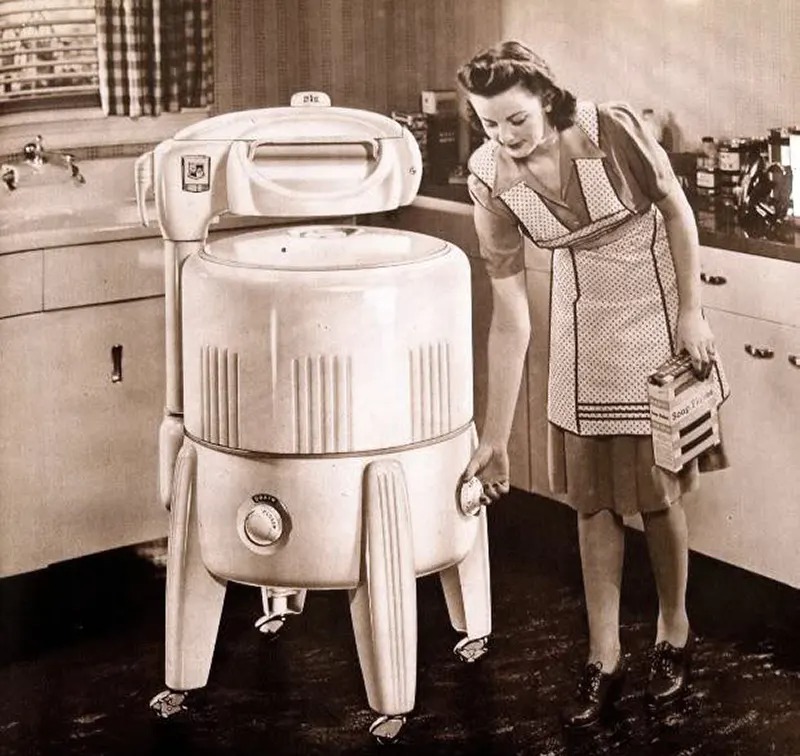
21. Doing the washing with the new washer in 1885
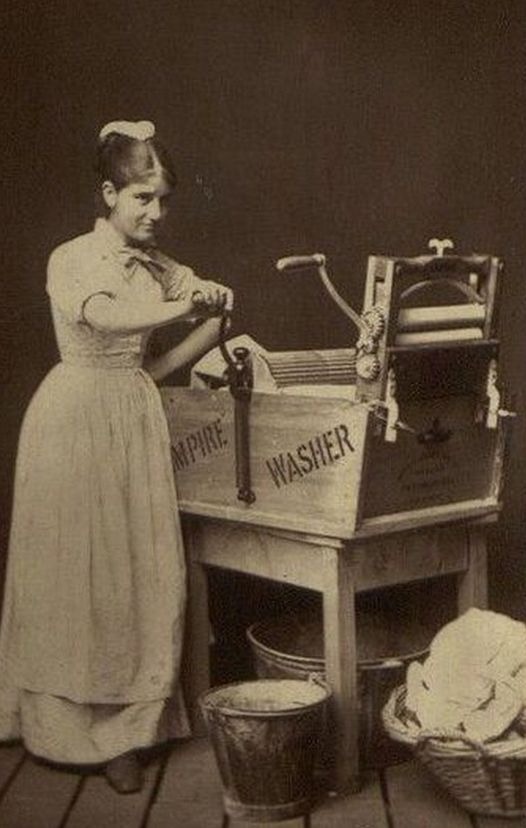
22. A woman carefully using a vintage washing machine with a hand-cranked wringer
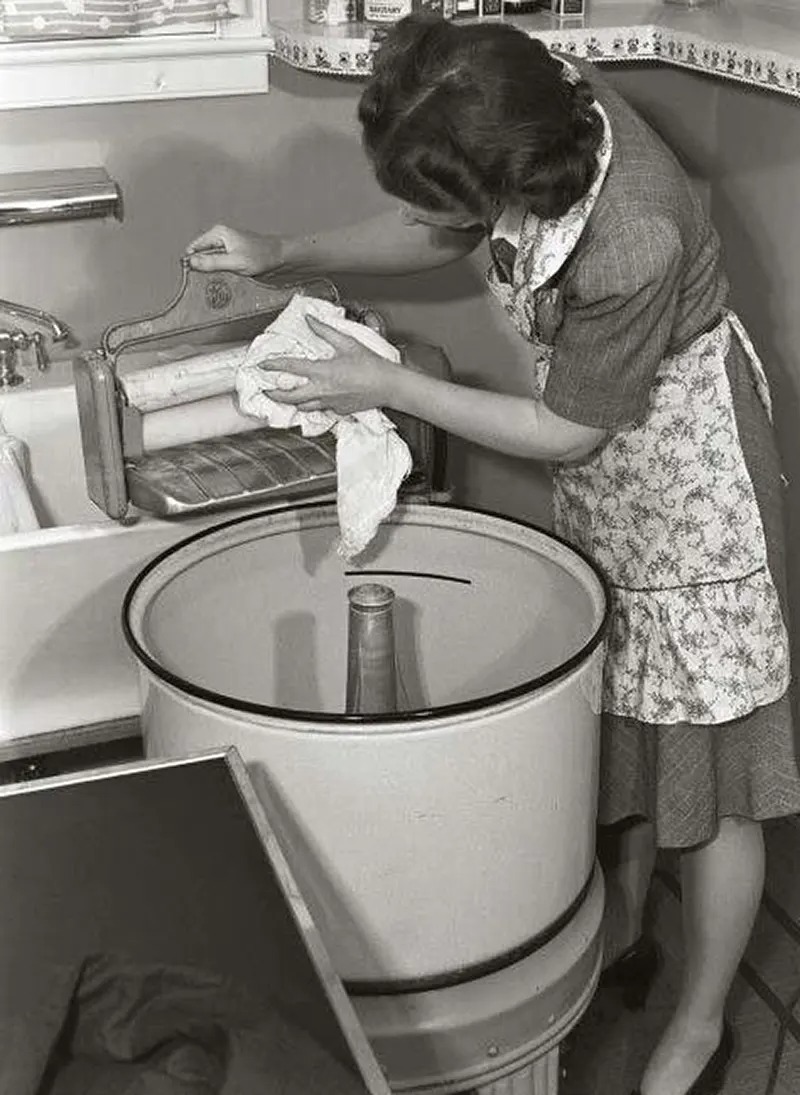
23. A woman in traditional attire stirring laundry in a large metal cauldron
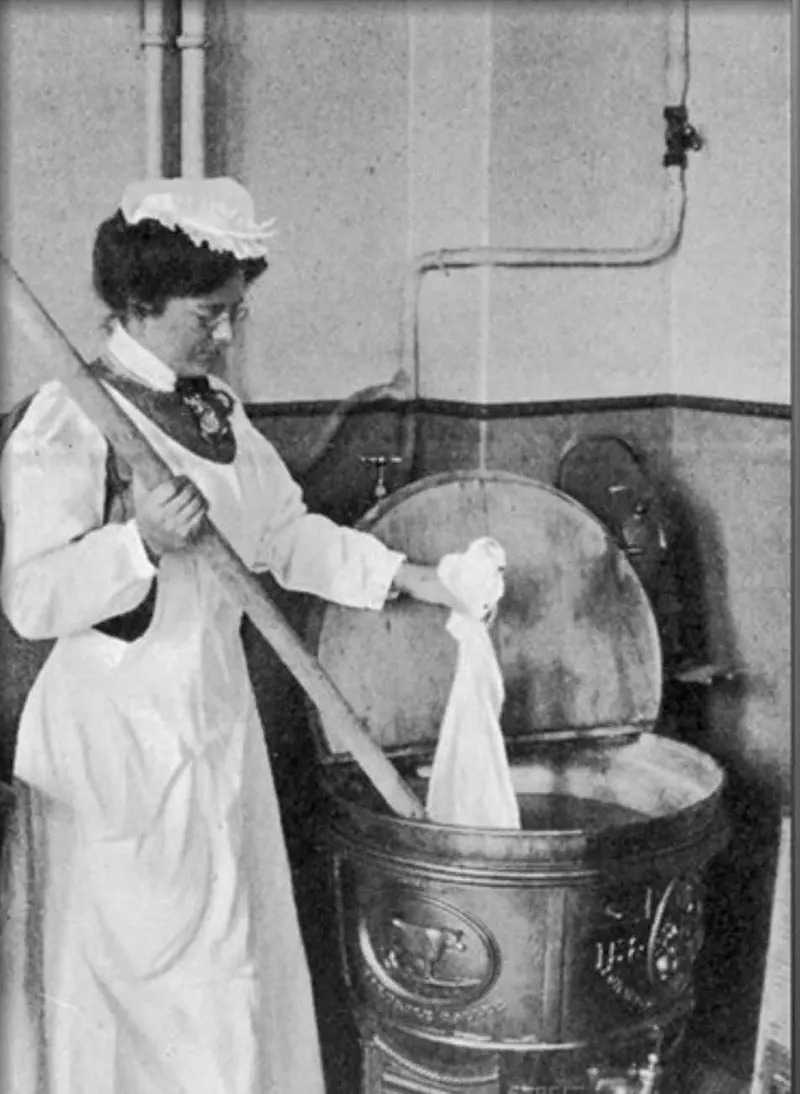
24. A woman demonstrating an early electric washing machine
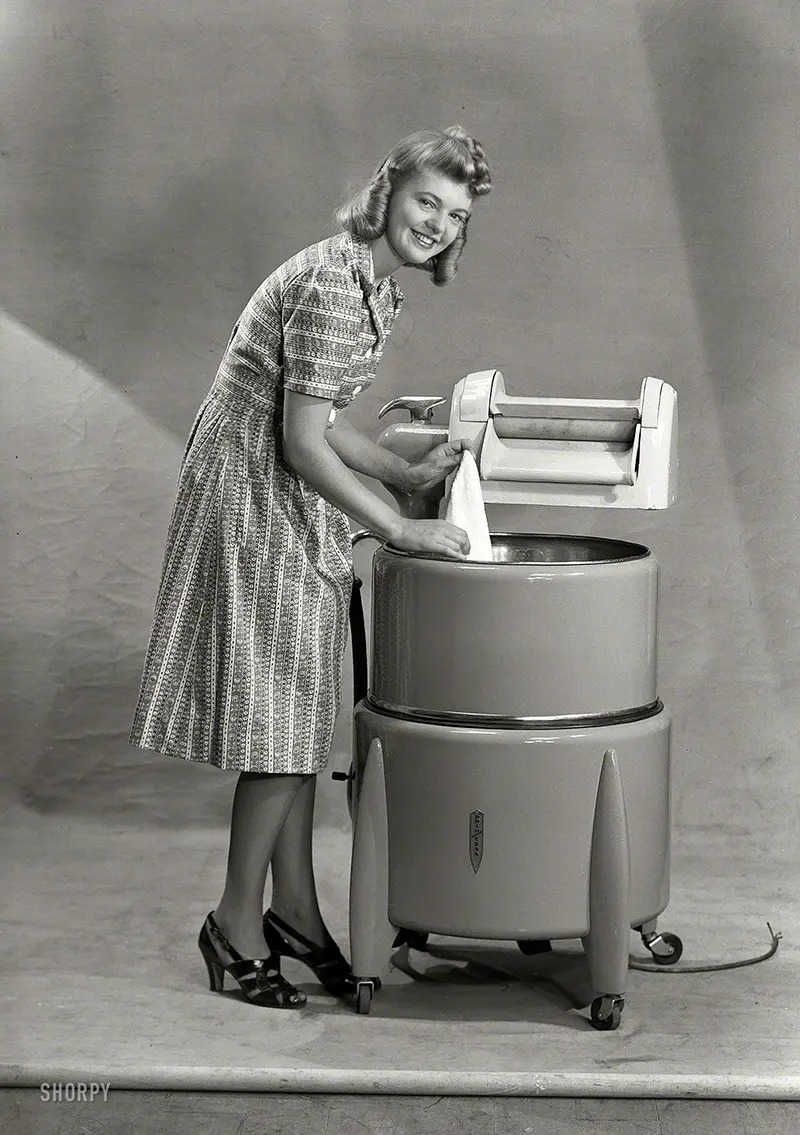
25. Advertisement for the ‘Six-Minute’ Washer
